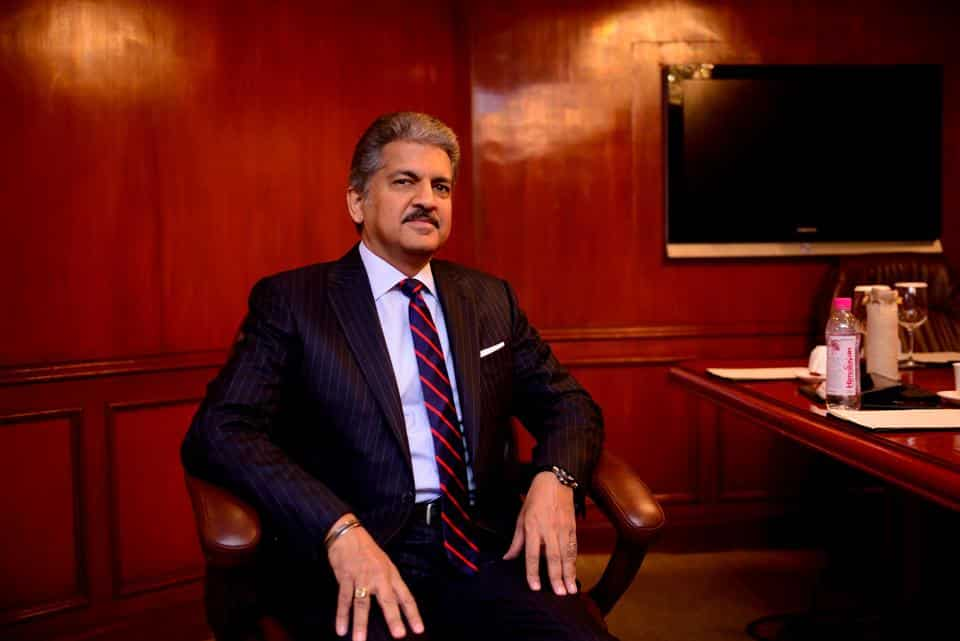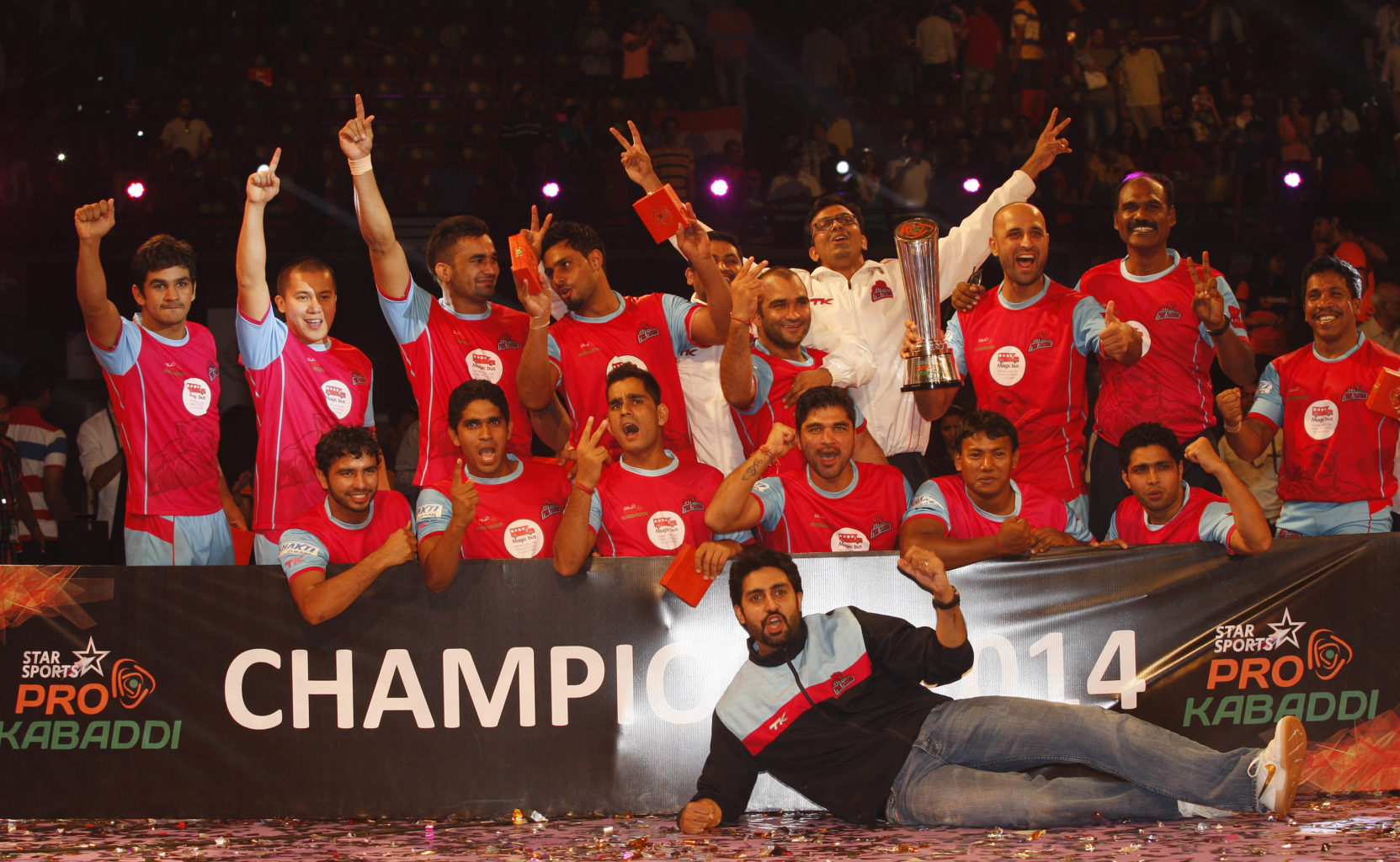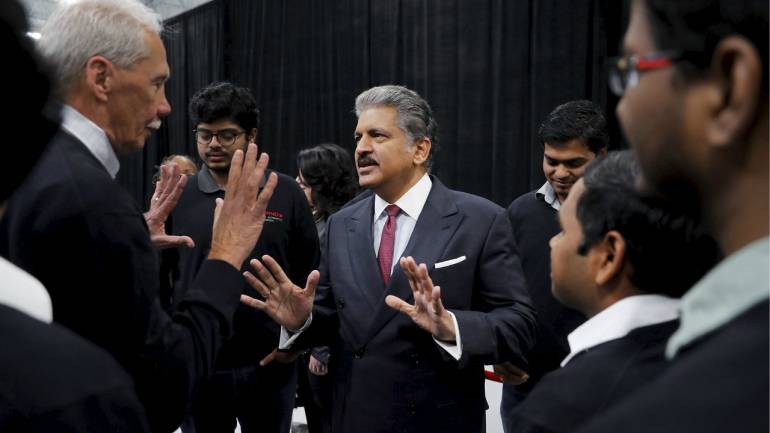Begin typing your search above and press return to search.
Featured
Kabaddi is India's genuine, indigenous sport: Anand Mahindra

Corporate participation for the upliftment of sports in India has seen a significant boom especially in the last decade or so. Amidst all of it, Anand Mahindra's name stands out as one of the pioneers especially when one speaks of the reinvention of Kabaddi in the country. Mahindra is part owner of Mashal Sports, which is the company that came up with the idea of the Pro Kabaddi League- the sixth edition of which is nearing completion with the final to be held today. For long, Anand Mahindra has cultivated an image of himself that transcends the boundaries of the business world. With a massive social media following, the industrialist is known to strike up conversations on varied contemporary issues which he relies on for ideas. From the Cambridge Analytica scandal involving tech giants Facebook to closer to home regarding businessman Nirav Modi's many charges of conspiracy- all of them are topics that he has brushed upon on social media. In an age where sports leagues seem to be the way to go when it comes to popularising a game in the country, it is worth noting that the success story of India's involvement with Kabaddi- from an indigenous sport to a popular one- essentially showed that the country's audience was not restricted to cricket alone. A sports fan himself, Anand Mahindra opens up to The Bridge about how the Pro Kabaddi League became the success it is today. A more detailed account of this is featured in the book Kabaddi by Nature.
What got you first interested in starting a professional kabaddi tournament? It was May 2008, and the inaugural edition of the Indian Premier League T20 competition had finished. And we all know what a resounding success it was. I was convinced that the time for professional sports leagues in India, combining entertainment, television and big business had arrived. I first attempted to do it within Mahindra & Mahindra as a rural league with our Tractor dealers as franchisees. Jaipur Pink Panthers were the winners of the inaugural edition. My team couldn’t take the idea forward. So I decided to do it in my capacity, and I reached out to my brother-in-law, sports broadcaster Charu Sharma to partner and manage the project because I knew he was a votary of the game. I have to admit though; I never envisaged that the Pro Kabaddi League would gain such traction so swiftly. How did you get Star involved? Charu was hunting for a network to sell broadcast rights to. Most channels were sceptical, and some even suggested that we would have to pay THEM to broadcast it. Star was the only one to step up to the plate, but as they will themselves admit, the fee offered was infinitesimal. However, we signed them up. As we were preparing for season one, I was in New York and got a call out of the blue from Uday Shankar, CEO and Chairman of Star India, and we set up to meet over lunch. He told me that he had already been to see Rupert and James Murdoch about his plans for kabaddi and vowed to them that he would make it the second most popular TV sport in India after cricket if STAR was allowed to invest in the league. On hearing this, I asked him if he too had been smoking something illegal! But as Uday continued, I became convinced that if anybody could pull it off, Star could. His ideas for the sport were so immense and exciting.
Jaipur Pink Panthers were the winners of the inaugural edition. My team couldn’t take the idea forward. So I decided to do it in my capacity, and I reached out to my brother-in-law, sports broadcaster Charu Sharma to partner and manage the project because I knew he was a votary of the game. I have to admit though; I never envisaged that the Pro Kabaddi League would gain such traction so swiftly. How did you get Star involved? Charu was hunting for a network to sell broadcast rights to. Most channels were sceptical, and some even suggested that we would have to pay THEM to broadcast it. Star was the only one to step up to the plate, but as they will themselves admit, the fee offered was infinitesimal. However, we signed them up. As we were preparing for season one, I was in New York and got a call out of the blue from Uday Shankar, CEO and Chairman of Star India, and we set up to meet over lunch. He told me that he had already been to see Rupert and James Murdoch about his plans for kabaddi and vowed to them that he would make it the second most popular TV sport in India after cricket if STAR was allowed to invest in the league. On hearing this, I asked him if he too had been smoking something illegal! But as Uday continued, I became convinced that if anybody could pull it off, Star could. His ideas for the sport were so immense and exciting.  "I told him that my goal was not to make a fortune, but to make the game succeed," says Anand Mahindra. What would you say is the main reason for the success of the Pro Kabaddi League? Success always has multiple causes and agents. Charu and his team did a great job of initial execution of the league concept. But if I had to point to one factor, it would be the grander ambitions of STAR. They took the nugget of my idea and transformed it into something I had not envisioned myself. They invested a considerable amount of resources into the PKL, which has resulted in a product that is world class.
"I told him that my goal was not to make a fortune, but to make the game succeed," says Anand Mahindra. What would you say is the main reason for the success of the Pro Kabaddi League? Success always has multiple causes and agents. Charu and his team did a great job of initial execution of the league concept. But if I had to point to one factor, it would be the grander ambitions of STAR. They took the nugget of my idea and transformed it into something I had not envisioned myself. They invested a considerable amount of resources into the PKL, which has resulted in a product that is world class.
Watch the story of Indian Kabaddi here: [video width="480" height="480" mp4="https://thebridge.in/wp-content/uploads/2019/01/Kabaddi-by-Nature.mp4"][/video]
What got you first interested in starting a professional kabaddi tournament? It was May 2008, and the inaugural edition of the Indian Premier League T20 competition had finished. And we all know what a resounding success it was. I was convinced that the time for professional sports leagues in India, combining entertainment, television and big business had arrived. I first attempted to do it within Mahindra & Mahindra as a rural league with our Tractor dealers as franchisees.
 Jaipur Pink Panthers were the winners of the inaugural edition. My team couldn’t take the idea forward. So I decided to do it in my capacity, and I reached out to my brother-in-law, sports broadcaster Charu Sharma to partner and manage the project because I knew he was a votary of the game. I have to admit though; I never envisaged that the Pro Kabaddi League would gain such traction so swiftly. How did you get Star involved? Charu was hunting for a network to sell broadcast rights to. Most channels were sceptical, and some even suggested that we would have to pay THEM to broadcast it. Star was the only one to step up to the plate, but as they will themselves admit, the fee offered was infinitesimal. However, we signed them up. As we were preparing for season one, I was in New York and got a call out of the blue from Uday Shankar, CEO and Chairman of Star India, and we set up to meet over lunch. He told me that he had already been to see Rupert and James Murdoch about his plans for kabaddi and vowed to them that he would make it the second most popular TV sport in India after cricket if STAR was allowed to invest in the league. On hearing this, I asked him if he too had been smoking something illegal! But as Uday continued, I became convinced that if anybody could pull it off, Star could. His ideas for the sport were so immense and exciting.
Jaipur Pink Panthers were the winners of the inaugural edition. My team couldn’t take the idea forward. So I decided to do it in my capacity, and I reached out to my brother-in-law, sports broadcaster Charu Sharma to partner and manage the project because I knew he was a votary of the game. I have to admit though; I never envisaged that the Pro Kabaddi League would gain such traction so swiftly. How did you get Star involved? Charu was hunting for a network to sell broadcast rights to. Most channels were sceptical, and some even suggested that we would have to pay THEM to broadcast it. Star was the only one to step up to the plate, but as they will themselves admit, the fee offered was infinitesimal. However, we signed them up. As we were preparing for season one, I was in New York and got a call out of the blue from Uday Shankar, CEO and Chairman of Star India, and we set up to meet over lunch. He told me that he had already been to see Rupert and James Murdoch about his plans for kabaddi and vowed to them that he would make it the second most popular TV sport in India after cricket if STAR was allowed to invest in the league. On hearing this, I asked him if he too had been smoking something illegal! But as Uday continued, I became convinced that if anybody could pull it off, Star could. His ideas for the sport were so immense and exciting. So I offered his channel a majority stake in the venture, which surprised him but I told him that my goal was not to make a fortune, but to make the game succeed, and if STAR was in the driver’s seat, and also driven by his conviction, then the chances of success were significantly higher. We shook hands there and then. How difficult was it convincing prospective buyers for PKL teams? Some of them thought that I had gone nuts. I was calling up some of the most influential and powerful business names in the business to convince them that they should buy a team. When I set out on this journey with Charu Sharma, I promised that I would be responsible for convincing my friends in the business community that they should invest in setting up a team. But they couldn’t see how kabaddi could be monetised and made into a favourite television sport. So I know many did it purely out of friendship, which I find very touching. I was also very mindful that their investment had to be modest, meaning that if they did buy a team and the whole thing flopped, they would not lose a lot of money. So we set the initial cost of buying a team at Rs 1 crore, which is not a mammoth amount for these people. At the end of the day, I stressed to them that the whole thing would be a lot of fun and would not cost them a lot of money."Success always has multiple causes and agents."
 "I told him that my goal was not to make a fortune, but to make the game succeed," says Anand Mahindra. What would you say is the main reason for the success of the Pro Kabaddi League? Success always has multiple causes and agents. Charu and his team did a great job of initial execution of the league concept. But if I had to point to one factor, it would be the grander ambitions of STAR. They took the nugget of my idea and transformed it into something I had not envisioned myself. They invested a considerable amount of resources into the PKL, which has resulted in a product that is world class.
"I told him that my goal was not to make a fortune, but to make the game succeed," says Anand Mahindra. What would you say is the main reason for the success of the Pro Kabaddi League? Success always has multiple causes and agents. Charu and his team did a great job of initial execution of the league concept. But if I had to point to one factor, it would be the grander ambitions of STAR. They took the nugget of my idea and transformed it into something I had not envisioned myself. They invested a considerable amount of resources into the PKL, which has resulted in a product that is world class. A lot of thought and technical expertise went into how they would broadcast kabaddi and the look and feel of the PKL. So, I have to give full credit to Uday Shankar and his team. Are you still surprised at how successful the PKL has been? Yes and no. Yes, because I never had it envisioned that the game would acquire such scale and popularity so soon. My idea was a more modest one, something that perhaps would start in the hinterland and grow incrementally. And no, because I know what Star is capable of when they get involved in something and put all their effort into it. Do you believe this says something more significant about India’s emergence as a stronger, wealthier nation that is taking its place on the world stage? For me, the success of both the IPL and the PKL tell two different stories. The IPL is the story of economic growth, of a country which has seen a tremendous upsurge in consumer spending, and of a people who have more disposable income which gives them the money to follow the sport. The PKL story is an emotional one of a country that’s more self-assured, its people more self-confident to the extent that they now embrace something that is genuinely their own. Cricket, after all, is the sport of the British Empire. Kabaddi is our genuine, national, indigenous sport. What gives you the greatest satisfaction about the success of the PKL? It has to be the newfound wealth and adulation that the players are enjoying. Almost exclusively they are down to earth village boys who have been playing kabaddi for many years and never received their just rewards. Not just their lives but also that of their families have been transformed. Homes have been constructed, the land has been purchased, and marriages for relatives have been paid for. It’s very humbling to see the way the PKL has benefited the players and those around them. Kabaddi is now a viable career option; you can make a good living from it. What did you find most captivating when reading Kabaddi by Nature? I never knew about the role kabaddi, and other traditional India sports played in India’s freedom struggle, which is such an important chapter of our nation’s life. And I don’t think many other Indians do either. I mean, how and why did a group of players from a small town in Maharashtra end up travelling to Germany for the 1936 Berlin Olympics and meeting Adolf Hitler? What was the connection between the likes of Mahatma Gandhi, Subhash Chandra Bose and other prominent freedom fighters and kabaddi?"For me, the success of both the IPL and the PKL tell two different stories."
Watch the story of Indian Kabaddi here: [video width="480" height="480" mp4="https://thebridge.in/wp-content/uploads/2019/01/Kabaddi-by-Nature.mp4"][/video]
Next Story
